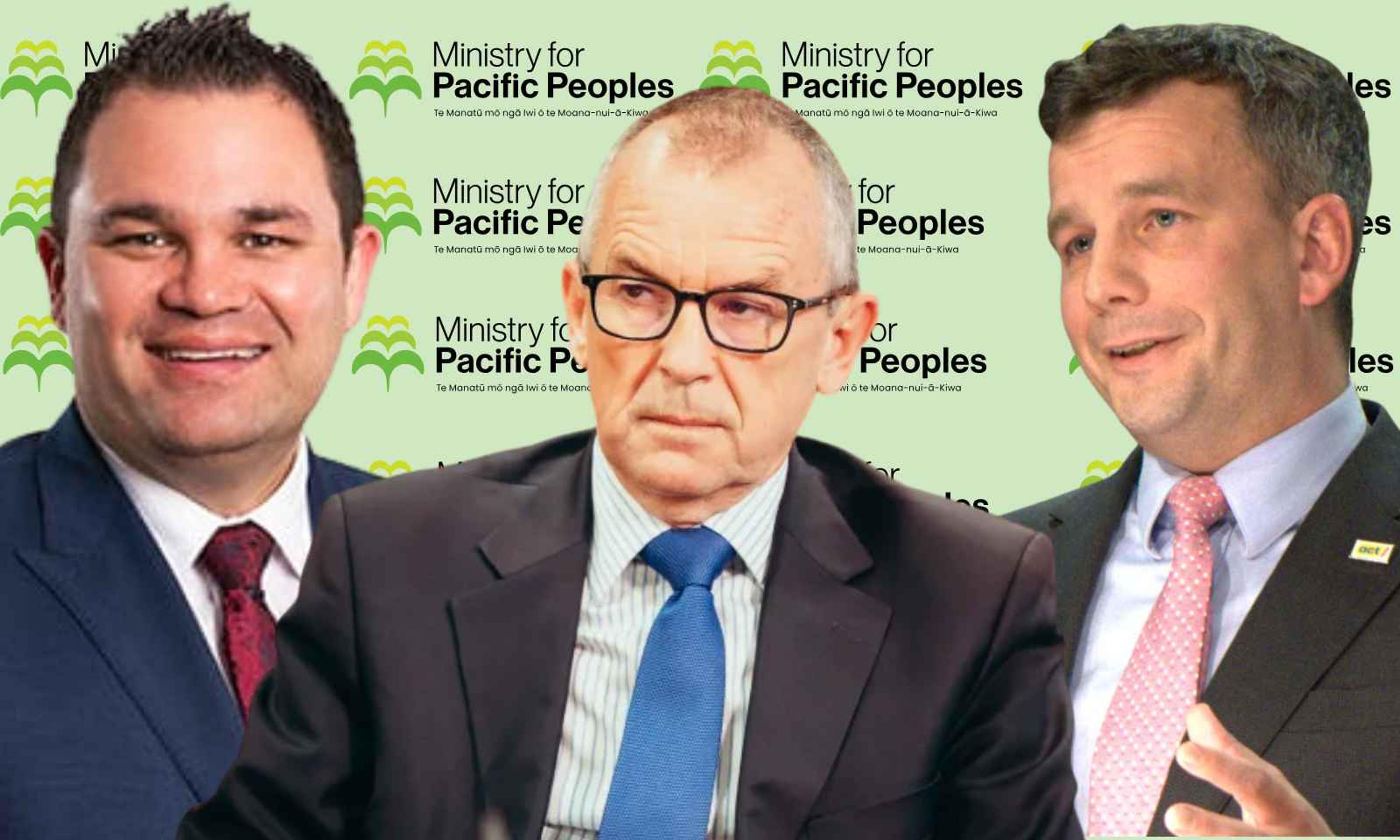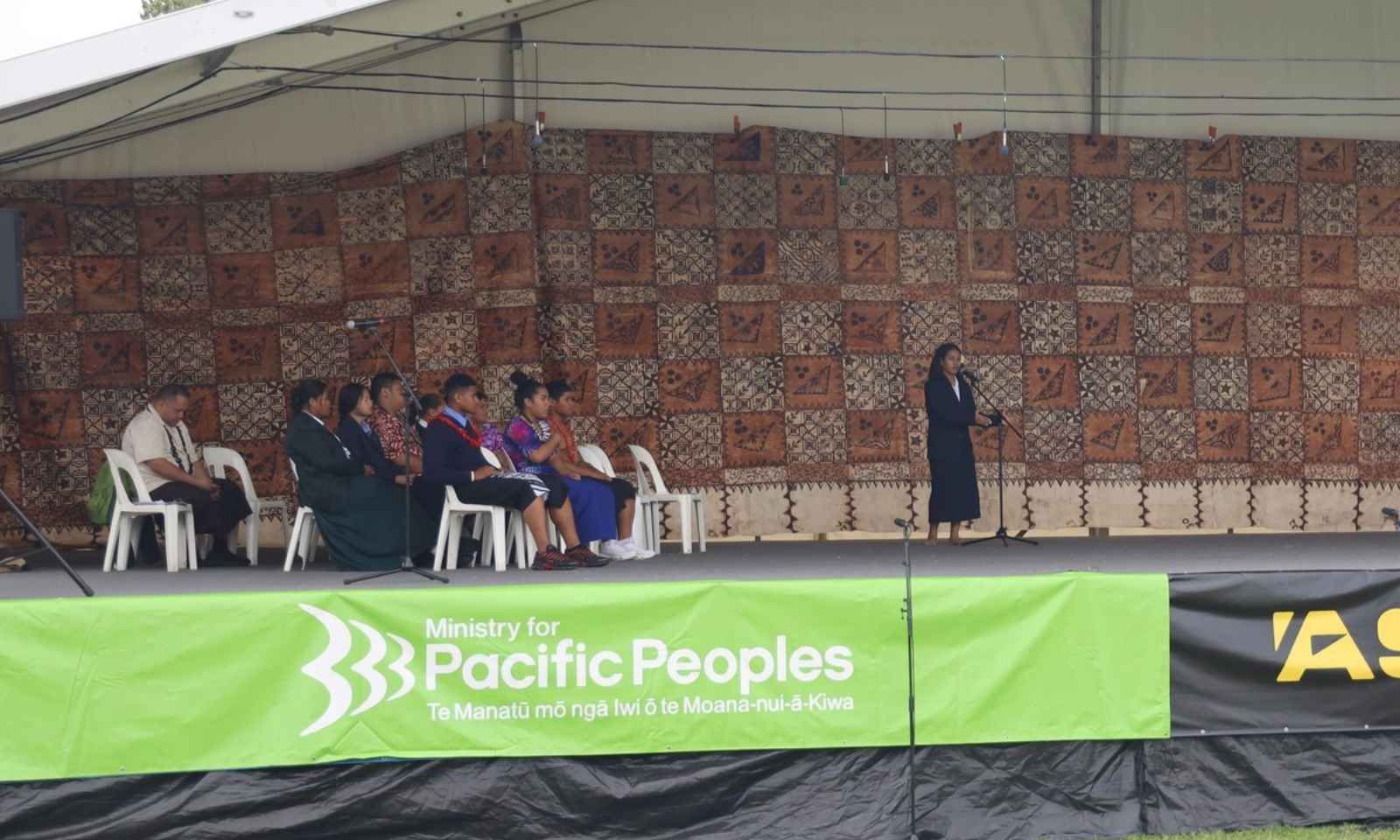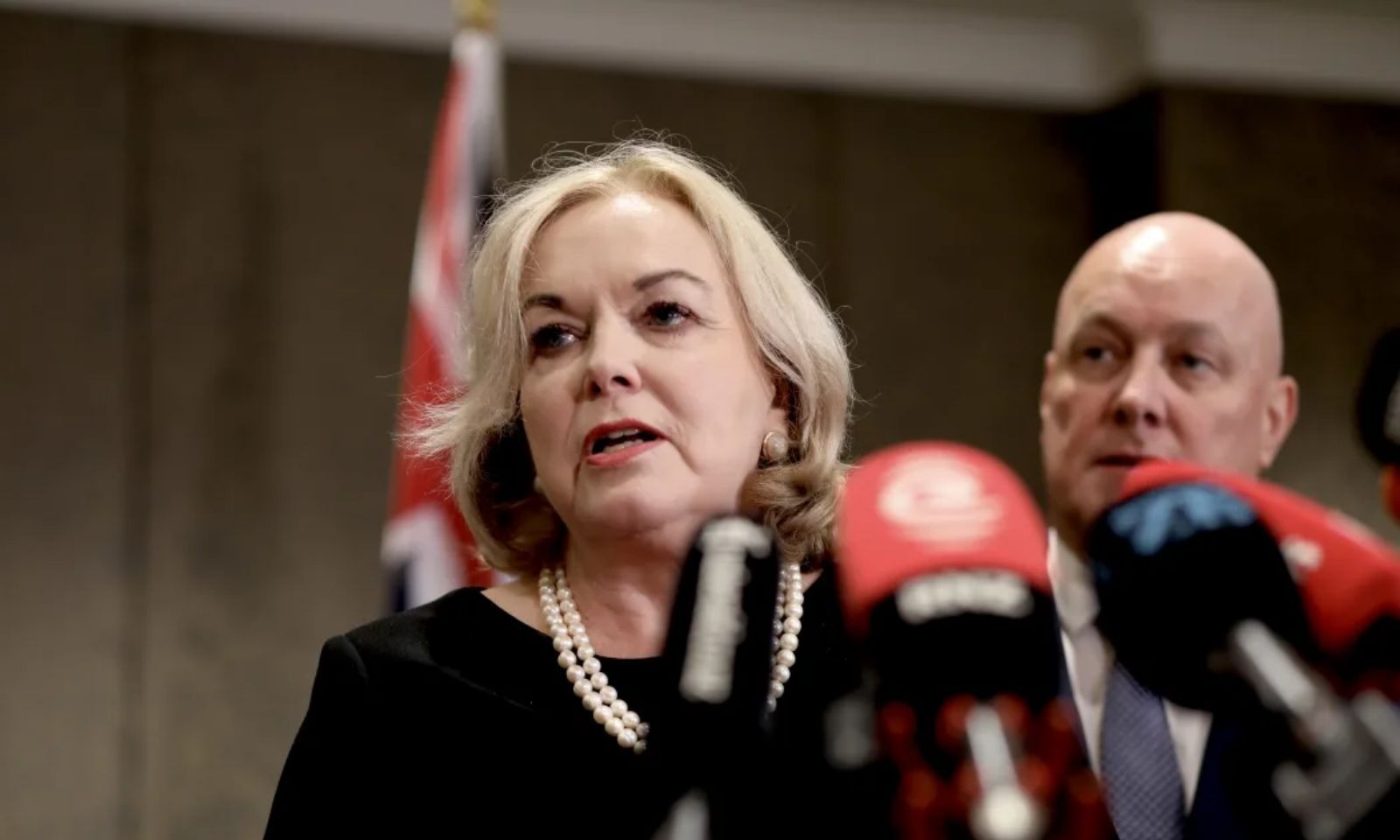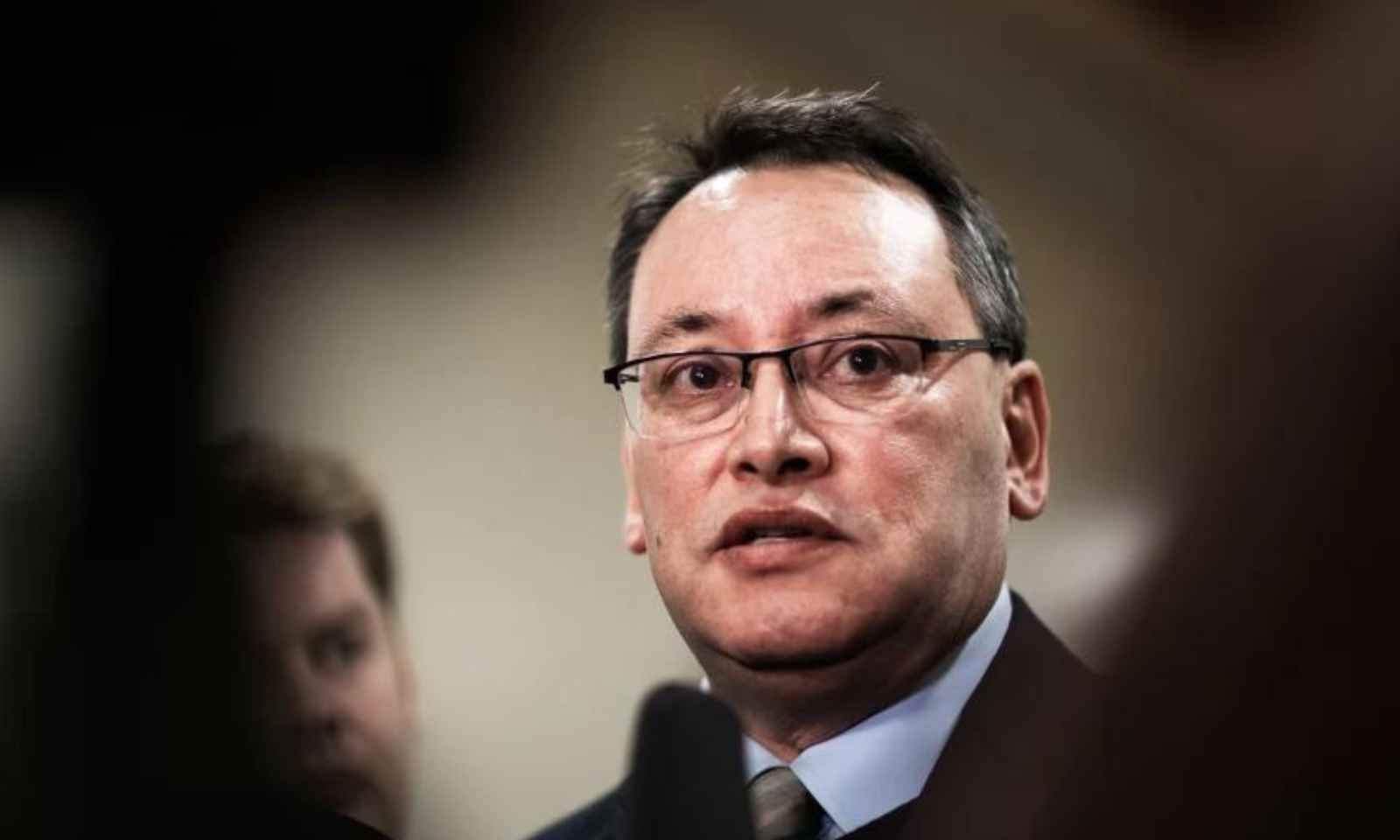

(left to right) Labour MP Tangi Utikere, Public Service Commissioner Sir Brian Roche and ACT leader.
Photo/Supplied
'Sensitive' briefing shows Pacific ministry meets criteria for possible merger
Officials warn that consolidation of smaller agencies could improve efficiency, but also risks disruption, weakened accountability, and years of recovery.



Float First: A message for Pacific families during the holidays




Father of 12 killed in US church shooting as police hunt for gunmen

Float First: A message for Pacific families during the holidays


The Ministry for Pacific Peoples faces another shake-up if ministers follow Public Service Commission advice to merge agencies with fewer than 100 staff.
The Commission is currently undertaking a review of ways to reduce fragmentation in the public sector and strengthen agencies so they can focus on their “core business.”
Recent media reports have suggested that population ministries are being targeted, but a ‘sensitive’ briefing paper prepared for the Minister for the Public Service in March 2024 shows that the Commission recommends considering any departments with fewer than 100 staff for consolidation first.
After recent budget cuts, the Ministry for Pacific Peoples (MPP) falls below that threshold, putting it directly within scope.
In a statement to PMN News, Public Service Commissioner Sir Brian Roche says the review aims to ensure efficiency and performance across government.
“There is significant variation in how different communities are represented within the public service,” Roche says. “At the same time, there are clear expectations on the public sector to improve its efficiency and performance. I have been looking at this, including how to strengthen the resilience and impact of some functions.”

The Ministry for Pacific Peoples is the principal advisor on policies and interventions that improve outcomes for Pacific Peoples. Photo/Supplied
Roche says that if any proposals go ahead, ministries will retain their functions and branding to ensure the communities they serve continue to have a voice in policy-making and service delivery.
Roche, who became commissioner in November 2024, did not comment specifically on the MPP or provide a timeline for the review.
Minister for the Public Service Judith Collins was unable to provide a timeline for the possible merger, nor could she confirm the number of jobs at risk.
“We’re still looking at some very preliminary advice,” Collins says. She says there’s a high spending on back office roles, which is becoming a huge burden to smaller agencies and that sharing the costs with other agencies through a merger would make it a lot more efficient.

Minister for the Public Service Judith Collins. Photo/Supplied
‘Radical simplicity’
In an interview with Pacific Mornings, ACT leader and Deputy Prime Minister, David Seymour, says there are too many portfolios and ministries, which creates ambiguity around accountability.
He compares New Zealand to Ireland, which has a similar population of about five million people but only 16 ministers and around 20 departments. Seymour argues that the clarity in responsibilities in Ireland has led to better outcomes for its citizens.
“So over there, you know who's in charge, you know who you're reporting to, the voters know which minister is responsible for getting a result. And I have to say, if you look at people getting out of poverty, becoming wealthier, living better lives, Ireland's had a much better 21st century than New Zealand so far.
“If we want to turn that around, I would say we need radical simplicity and that is going to mean fewer departments.”
Asked whether the effectiveness of the MPP would be lost if it is merged, Seymour points to charter schools as an initiative that will benefit Pacific education outcomes, but admits he is not aware of any contribution from the Pacific ministry to the programme’s development.
The MPP declined to provide a comment. Defending his ministry, Dr Shane Reti says the MPP’s role is still relevant, but that decisions on a possible merger currently rest with the Minister for the Public Service, Judith Collins.
Watch David Seymour's interview below.
The March 2024 Commission briefing paper also highlights how New Zealand’s system is crowded with chief executives, from those running massive agencies like Corrections to smaller ministries such as Women, with fewer than 50 staff.
The paper says that a large cohort sits on the Public Service Leadership Team, making it harder to work cohesively or drive change. By contrast, Victoria’s entire public service is overseen by just 12 secretaries.
MPP faces multiple challenges
Since the Coalition Government took office, the MPP has faced more than $60 million in budget cuts and a staff reduction from 156 to 99 staff members.
Labour’s transport spokesperson and Palmerston North MP, Tangi Utikere, says he is concerned the review could see the ministry folded into larger departments.
He says the MPP has played a strong role over the years in resourcing and shaping policy across business, education, and community support.
“To use the suggestion of red tape as an explanation to fold a whole pile of ministries, including MPP, presents real challenges and risks of losing their autonomy,” Utikere says. “So I am concerned about it.”
Watch Tangi Utikere's interview below.
National Secretary for the Public Service Association, Duane Leo, says the union hasn’t been consulted on a possible merger.
“What we’re concerned about is what we’ve seen from this coalition government is when they make changes, they move very quickly and under urgency,” Leo says.
Leo says comparisons to Victoria’s public service don’t add up, seeing that Australia has a state and federal government.
He says a merger could do injustice to the work Pacific people have done in the past, in terms of securing a voice in government.
“Pacific families aren’t numbers on the balance sheet, they’re New Zealanders who deserve services that understand their needs and advocate for their interests.”
Utikere says the MPP plays a crucial role in advocating for key issues like housing and health, where Pacific communities face negative statistics and ongoing inequities.
He warns Pacific communities will push back strongly against the idea of a merger but “this is a government that uses a huge amount of urgency to basically ram through legislative changes.”

Minister for Pacific Peoples Dr Shane Reti. Photo/File
Efficiency Measures
As well as recommending consolidating small agencies with fewer than 100 staff, the PSC paper also suggests tightening their back-office operations, and applying a “one-in, one-out” rule so new ministries replace existing ones.
It also proposes grouping agencies into sectors with stronger leadership, shifting some functions into departmental agencies or branded business units, and using interdepartmental boards to drive collaboration.
The Commission warns that changes to the machinery of government are disruptive and expensive, with productivity typically taking three to five years to recover after a major restructure.
It notes that rapid consolidation risks weakening accountability, since responsibilities may be blurred when functions shift between agencies.
There is also the danger of creating large “super-ministries” that simply internalise silos rather than resolving them, making government less responsive rather than more efficient.